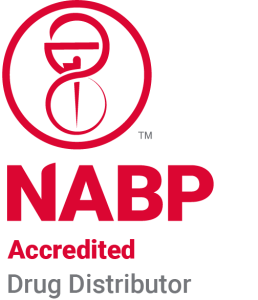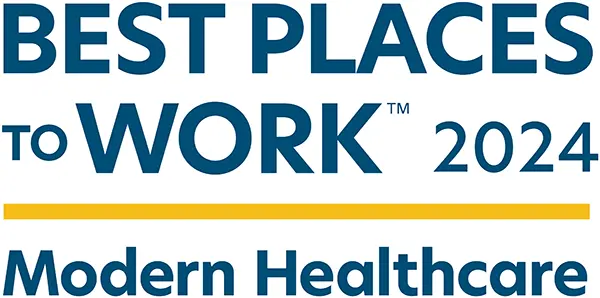In this special episode, we discuss the Pharmacists Fight Back Act and explore Ohio’s pivotal role in advancing PBM reform. Join us for a compelling discussion with three distinguished pharmacy leaders: David Burke, Executive Director of the Ohio Pharmacists Association; Mark Kinney, Executive Vice President of Government Relations at the Independent Pharmacy Cooperative (IPC); and Antonio Ciaccia, CEO of 46brooklyn Research & 3Axis Advisors, our resident expert on PBM data.
Legislative Spotlight: U.S. Representatives Jake Auchincloss (D, MA-04) and Diana Harshbarger (R, TN-01) have introduced the Pharmacists Fight Back Act to combat the detrimental practices of pharmacy benefit managers (PBMs), the intermediaries responsible for escalating drug prices, undermining community pharmacies, and restricting patient options in federal healthcare plans. This bipartisan bill represents the most comprehensive federal reform targeting PBMs to date.
Key Provisions of the Act:
- Establishes a transparent pharmacy reimbursement model based on market pricing, aligned with the National Average Drug Acquisition Cost (NADAC) plus a state-specific dispensing fee, capped at either 2% or $25.
- Eliminates PBM-imposed restrictions on patient choice through network exclusions.
- Safeguards community pharmacists by banning PBM practices that steer patients to their own affiliated pharmacies.
The scrutiny on PBMs is intensifying, as communities nationwide face pharmacy shortages, hindering access to care and driving up health plan premiums and out-of-pocket drug costs.
With recent developments, including a House Committee on Oversight & Accountability report, hearings featuring leaders from the three largest PBMs led by Representative James Comer (R, KY-01), and the potential for a lawsuit from the Federal Trade Commission, the urgency for Congressional action has never been greater.
Tune in to learn how we can advocate for meaningful change!
Guests:
David Burke
Executive Director
Ohio Pharmacists Association
dburke@ohiopharmacists.org
Mark Kinney
Executive Vice President of Government Relations
Independent Pharmacy Cooperative
mark.kinney@ipcrx.com
Antonio Ciaccia
Chief Executive Officer
46brooklyn Research
Transcript
Announcer 1 (00:03):
Attention independent pharmacists join the nation’s largest independent pharmacy owned business buying group and strategy cooperative IPC at the NCPA 2024 annual convention and expo. Mark your calendars for October 26th through the 29th, 2024 at the Greater Columbus Convention Center in Columbus, Ohio. This year’s theme, growth, performance success. Don’t miss your chance to connect with the industry leaders, discover innovative solutions and elevate your pharmacy success. Visit us at Booth six 19 to learn how IPC can empower your business. This is the only national business show designed specifically for independent pharmacists and their teams. Join us at NCPA 2024 where your growth for the future of pharmacy begins. See you there.
Announcer 2 (01:00):
You are listening to the global network of podcasters dedicated to the pharmacy profession. Welcome to the Pharmacy Podcast Network.
Announcer 3 (01:27):
Welcome to the PBM Reform Podcast where we dive deep into the world of pharmaceutical benefit management, cutting through the noise to uncover the truth. Since 2019, we’ve been your go-to source for the latest on how PBMs impact patient care, drug pricing, and the very future of pharmacy. Here we champion the role of pharmacists, the most knowledgeable advocates for medication safety and expertise. Join us as we expose and generate discussions that are reshaping healthcare and explore how we build a better payment system which focuses on advancing pharmacy care.
Todd Eury (02:12):
Hey, welcome back to the PBM Reform podcast. I’m here today with a group, a panel discussion of team leaders throughout our nation. Specifically, we’re going to be focused on the state of Ohio as a blueprint for moving forward as a nation and how well the state has done in the realm of PBM reform and really making pharmacy care more accessible, fair playing fields for our independent community pharmacies. The importance of the survival of community pharmacy right now is accelerated. You see it in the news. We know through the pharmacy deserts and the data that is coming back from health and human services throughout the nation through different states, the increased issue that pharmacy deserts are going to create on public health. Hey, I want to introduce David Burke. He’s the executive director of the Ohio Pharmacist Association. David, we are thrilled to have you here today.
Todd Eury (03:17):
Todd, thank you very much for having me. Happy to be here.
Todd Eury (03:19):
I also want to say hello to Mark Kinney. He is with Independent Pharmacy Cooperative IPC, which is a powerhouse buying group for the survival and thrive ability of our independent community pharmacies and really focuses on government affairs and I love talking with Mark. Welcome, mark.
Mark Kinney (03:40):
Thank you, Todd. Glad to be here as well
Todd Eury (03:43):
And kind of a star to us all. If you’re a nerd like me about pharmacy and the realm of PBM reform. If you don’t know Antonio Ciaccia with three Access Advisors and 46 Brooklyn, then you don’t know who the Jedi is master of data interpretation in the world of PBMs. Antonio Ciaccia, it’s so good to have you here,
Antionio Ciaccia (04:08):
Todd. Always a pleasure my friend.
Todd Eury (04:11):
And just as a side note, the Pittsburgh Steelers are three and 0 right now in the NFL and Antonio and I happen to favor the Pittsburgh Steelers, even though I said to Antonio, I don’t recognize them, but I do like watching them play,
Antionio Ciaccia (04:27):
Hey, let us all dine on Pierogis if they become four and 0 no.
Todd Eury (04:33):
Alright, so we’re in a mess. People listeners, you know this, but we want to bring you up to date. There’s a lot going on. There’s a lot of positive things happening in new policy creation based on the data that we’ve had that we’ve been making trying to make heads or tails out of. And that’s where the data is so important to bring it back to legislators but also interpret it for them to put it through a microscope to let them really drill down and to understanding how that’s impacting health and human services and public health. There are so many independent pharmacies out there, 16,000 plus throughout the nation. They’re a drug channel. They’re care providing diabetes management. They’re digging down into very serious disease states and it’s the system in and of itself that’s creating issues. It’s the PBM in of itself and we’ve heard a lot from Antonio that’s been giving testimony. You’ve been featured on different news programs. I want to start with Mark Kinney from IPC. Mark. Tell us about the initiatives of the organization and the specific successes that you’ve witnessed in the state of Ohio.
Mark Kinney (06:02):
Yeah, Todd Ohio has actually been on the forefront of meaningful PBM reform, and it couldn’t come at a more crucial time. You talked about the data. We show that over 2200 community pharmacies have closed across the country, many of those in Ohio as well, that’s independent and chain pharmacies. But there’s a need for putting in some common-sense reasonable restrictions and regulations on the PBM practices that are really forcing these local community pharmacies to no longer be able to provide for their patients in those local communities. And so I know that Antonio was for many years, one of the first to start looking at that. And I’ve worked with Dave Burke now for over a year on getting PBM reform legislation introduced and hopefully passed. We have some sponsors, representative Barhorst and Senator Stewart that have introduced House Bill 5 0 5 back in late summer and it’s got some really good provisions, I think some protections that will allow pharmacies to continue to service those patients in their local communities.
Todd Eury (07:29):
David, as someone who’s leading the Ohio State Ohio Pharmacist Association, where is the state of Ohio in reaching out to you as an association for that kind of data? Where are we with PBM reform in the state of Ohio?
Todd Eury (07:48):
We’ve made some pretty serious progress historically, right? We think about Mac legislation regarding the price of drugs. Unfortunately, the PBMs, as we have learned over time just simply change the wording or definition of price or cost and moved around that. We’ve done some solid work with audit reform in the state of Ohio, right, based on how far back PBM can look and what type of things qualify as a recoupment type of policy. Those have been substantive. As Mark mentioned, house Bill 5 0 5 follows in that pathway, right? By having a legislative approach to kind of a out shall and thou shall not about problems that representative Bar horse just rightfully pointed out that are painfully as obvious as when Antonio and I started working on these issues over a decade ago. But we’re leading a two-pronged approach here in Ohio. So, it’s not just the legislative approach like most states have done. We are building a regulatory bill with our attorney general and the Department of Insurance to regulate PBMs as the entity that they are currently under Ohio law. They’re third-party administrators, but I think anybody who’s touched this market realizes that PBMs don’t just administer, although they’re not quite insurers either, right? They kind of fall into their own bucket. And that is the approach we’re taking, and we’re working through regulatory agencies to oversee this and add transparency to this marketplace.
Todd Eury (09:24):
Thank you so much. And Antonio, you have been on the news. You’ve been brought into testimony. There are quotes being made publicly that are extracting data from your firms and very proud of what you’ve done. Pharmacy benefit management reform has really emerged as this bipartisan issue. Its Congress is coming together. Finally, both Republicans and Democrats have advanced that myriad of bills that would begin to address PBMs and the lack of transparency and the misalignment of why even make the money that they are and the profits that they are. We know that the FTC is now digging in and putting teeth into this, and you’ve made comments on that. Give us an overview. Let’s start with the success of Ohio first and then we’ll of course unpack other things that are going to impact the nation.
Antionio Ciaccia (10:23):
Thanks, Todd. Like any story, start at the beginning. Right. And when I started at the Ohio Pharmacist Association in 2010, it was really just about triaging complaints from pharmacists about a variety of matters that were impacting the profession. PBMs being one of the most significant, but pharmacists like any other profession encounter many challenges that they are not necessarily paid commensurate with their value. The way that they’re paid doesn’t necessarily incentivize the things that we want them to do. And so, you had this greater problem of a misalignment of paying for what we want pharmacists to actually achieve for a patient and broader public health goals. And so, as we tried to do that, we realized not only are they not being paid the right way, but at the time they weren’t being paid enough to even exist. So what good is an incentive alignment if there is no actual bandwidth for incentive?
(11:25):
And the problem in Ohio was that as pharmacies were being underpaid for what they were doing in the Medicaid program, I understand that obviously in a very pharmacy centered podcast, we want to talk about the impact to the pharmacist, but the other on the other end of the transaction is a series of taxpayers that are footing the bill to drive pharmacies out of business. And it would be one thing if taxpayers were finding value in that underpayment, but that’s not what was occurring as pharmacies were being underpaid for what they did. The state was simultaneously being overcharged for those same transactions. That’s right around the time when I started working very closely with Dave Burke, Dave before he was running the Ohio Pharmacist Association, Dave was a state representative and a state senator, and perhaps most importantly, Dave was one of the people that created the Joint Medicaid Oversight Committee, which is essentially a joint venture of the House and the Senate with the idea that Medicaid as a standalone marketplace was complicated enough that it required a special degree of oversight from lawmakers because historically, the executive branch of government was either not giving lawmakers the information they need to hold the program accountable or they were resistant to changes, right?
(12:49):
They would just prefer to run it their own way. And so, Dave running the joint Medicaid Oversight Committee was a key facilitator in driving demands for increased information for what was actually happening in that Medicaid program that occurred concurrently with the Columbus dispatch beginning their investigations and us crunching our data that ultimately unearthed this 245 million asymmetry of information between pharmacies being paid very low and the state then billed very high. And then over the course of that, the state said, hey, let’s ban spread pricing because we don’t want to lose this value to the intermediary while pharmacies are going out of business. What we quickly learned is what pharmacists have been talking about for quite some time, and it is a phrase that is constantly uttered in state legislatures and in Congress alike, is this game of whack-a-mole. You close one hole only to learn that there are many other holes in that system giving way to effective rate claw backs, DIR fees, specialty pharmacy, overcharging and steering, right? All of these things are different forms of what I would call lowercase s spread pricing. That is finding ways to buy low sell high and create advantages that may not necessarily be felt equitably across the entire pharmacy marketplace. So, Ohio has been a great catalyst, no doubt, largely not because of anything intrinsically special other than demanding answers for questions that had been previously unanswered.
Todd Eury (14:34):
That makes sense. And the Attorney General Yost has just been amazing at understanding and collective from all the data to be able to come out with decisions to the state of Ohio and it’s being watched by the rest of the nation. Expand upon to David Burke through just what work you’ve done and the information that you’ve been able to help generate for organizations and even Attorney General Yost, what have you shown from the pharmacy care perspective, the independent pharmacy perspective, that this is impacting coverage, it’s impacting pharmacy deserts. What other things have you supplied the state of Ohio?
Todd Eury (15:28):
So certainly, the Medicaid Oversight Committee brought a lot of these things to light as Antonio mentioned that were going on in the state of Ohio. And disparity between, I guess to answer your question globally, this cost charge issue with drugs and the Attorney General Dave Yos quickly realized that drugs are single source items for the most part. Even generics have a limited capacity, but under federal law, a drug X is drug X in Ohio as it is in California, as it is in New York, and there were else in the country. So, there’s almost a utility kind of process that goes on with drugs if you look at ’em that way. Antonio Chacha broke down what has been this price differential over why if something is the same thing, no matter where you go to get it, is the price so different and it’s not $10 at one place in 20 in another, it’s $10 at one place and a thousand dollars at another. And why is this happening? Right? So, Dave Yost, I think like myself and Antonio and Mark, we believe in competitive markets, but competitive markets required transparency. And not only is the taxpayer being hurt, as Antonio talked about within the state Medicaid system, the average person is also being hurt because it’s driving out business. It’s limiting capacity of the pharmacy market. Look no further than the recent Walgreens story, and then potentially closing up to 25% of their locations after consuming and closing Rite Aid stores.
(17:03):
And to double down on that, that’s a geographic desert. How about the contractual deserts that Antonio touched on, right? Where my pharmacy simply isn’t in that network, or if it is it’s $50 to come to my store, but the store that’s 10 miles away, for example, is a zero copay. I would argue that’s very much a desert because somebody who’s on four or five different medications, that’s two to $300 a month versus zero. I mean, they’re not going to come to my pharmacy. So, what we really want to do here in Ohio, what the attorney general’s lawsuits focus on are having payers and insurers meaning health plans, being able to look at the prescription drug benefit. And it means the same thing PBM to PBM and company, company not, I’m going to save you $20 million, I’m going to save you 30 million if you go with me.
(17:55):
No. How about the price of prescriptions and the risk adjustment, the actuarial base for that portion of the health benefit, just like any other health benefit is based when it comes to building a premium, that’s the competitive market that we want pharmacy to find in that market. I believe independence will thrive because their service value is much higher and their ability to operate in that business environment is less expensive. So, to me, patients win when we have a competitive market and independent pharmacy is a direct beneficiary of that versus the environment, we have today that’s contractually restrictive and cost prohibitive and clearly increases the price of the product that the patient needs to avoid a higher cost health setting.
Todd Eury (18:43):
Mark, there have been bills that have come in front of state Congress that one of them is called the Drug Act. The other is the protecting patients against PBM Abuses Act. And then there’s another one lower cost more transparency act, I think of this all rolling up to what is now known as the Pharmacist Fight Back Act, which is being led by the state representative Jake.
Antionio Ciaccia (19:14):
Yeah, Congressman Jake Chen.
Todd Eury (19:16):
Yes.
Antionio Ciaccia (19:17):
Learned the name because you’re going to hear it for a long time
Todd Eury (19:19):
Watching. I love him. And I’ve watched him on TikTok and Diane Harshberger from Tennessee. So talk to us, mark about that, the pharmacist Fight Back act and what kind of inclusiveness, because I think of IPC, I think of IPC gathering up 4,000, 5,000 independent pharmacy owners and understanding, being educated and then being able to take action, whether that’s flying into Washington DC meeting with policymakers or just inviting people into their own pharmacies to really review impact of lack pharmacy access. But expand upon that from your perspective, mark.
Mark Kinney (20:02):
Yeah, Todd, you’re absolutely right. On a federal level, I think there’s a bipartisan understanding that Congress needs to act. There needs to be some regulation of these egregious business practices that we find ourselves having to deal with. And when I go out to Washington DC and we had a fly in, we flew in our board of directors and our senior management team, and we went up on the hill back in March and met with these folks including Dina Harshbarger, buddy Carter and others that are clear pharmacy advocates and they get it. And what’s interesting is five years ago when I went up on the hill, sometimes people, their eyes glazed over because it’s pretty complicated, right? And by design, by design, it’s complicated and it’s not transparent. And so today when we go up there, everyone understands what PBMs are doing and why there needs to be something done.
(21:17):
And I think the Senate Finance Committee with their modernizing and ensuring PBM Accountability Act, that Senate Bill 29 73 was really the first out of the gate to take a hard look at this and part of that legislation would require transparent cost-based reimbursement for Medicaid programs, eliminating spread pricing that Antonio referred to before, and then also having standardized performance standards for reimbursing pharmacists for clinical outcomes. And that was a really good start and then send it to help and commerce. They also had hearings and committee legislation that was passed, and one of the really important pieces of that legislation coming out of Senate commerce was fair and relevant reimbursement for pharmacies. And that of course includes cost-based transparent reimbursement that everyone can see. It’s not behind a smoke screen, and we think that that’s real good legislation as well.
(22:34):
Well, when you talk about representative auction clause, that bill was introduced relatively late just a few months ago. It includes some tremendous provisions that we certainly support, and I would agree we’re going to hear a lot more from Representative Laus. He’s very well-spoken, articulates smart, he gets the issues and we’re very supportive of what he’s doing and others in the house, they continue to have votes on PBMs bill, and if you remember, the house actually passed PBM reform legislation and it got caught up in the Senate, and so we were trying to figure out what we can do to loosen the log jam a little bit there. And Senator Schumer, he had some concerns more about hospitals, not about the PBM piece, and Senator Cassidy from Louisiana, he didn’t feel like the bill went far enough, meaning the Senate health bill not represented auction clause bill, which still has to move, but again, even those two senators now recognize that we got to do something.
(24:00):
My concern though is we’re running out of time in this Congress and this Congress has not passed a lot of bills based upon a historical basis, and we’re really looking at probably lame duck session after the election, maybe 30 days or a few more than that to get something done. And representative, I should call him, speaker Johnson just this week said that, boy, his main focus is just getting a continuing resolution to fund the government done. His words were, I’m not sure if we’re going to be able to really address some of the other legislation that needs to be passed. That was a little bit disconcerting to hear, but at the same time, Senator Wyden, who heads up Senate Finance said, this is still our number one priority. We need to get PBM reform passed. We need to get it passed this Congress. And so we still think we got some good movements on the house side.
(25:10):
You may have seen the hearing. That’s Chairman Comer from the House Accountability Committee had an oversight, and that was, I don’t know if you had a chance to see that, but they brought the three big PBM CEOs in, asked them some tough questions, and that went on for about four hours. And I’m not sure if the committee got the answers that they were really looking for. Then I’d also point out that this week, Senator Bernie Sanders had the CEO of Novo Nordisk to talk to them, that committee. And one of the questions that Senator Sanders asked and was, why does OZEMPIC cost in the United States $960 for 30 days? Where in Denmark where that company is headquartered, it only costs around $160. And oddly enough, in Germany it’s only $56. And the response that the CEO gave was because you have PBMs. And so that should be a wake up call for everyone. That high prescription drug costs, I mean, you can point the fingers that maybe a lot of channel participants, but PBMs have a big role in that.
Todd Eury (26:36):
Yes, Antonio, you and I have talked so many other times, I’ve listened to you read your reports. I can about half of it with all the complexity that’s baked into the existing standards that are in place for PBMs to act. But I try to simplify things, especially for the lay person, is to describe to them why this is so important to vote for certain things and for certain representatives, either senator or house within your state. The three things we know that this, this pharmacist Fight Back act implements a transparent pharmacy reimbursement model using market-based pricing benchmark to the national average drug acquisition cost or naac, and then a dispensing fee. And then the next thing removes the ability for PBMs to restrict patient choice via networking exclusions, and then finally protects community pharmacists by prohibiting PBMs from steering patients to PBM affiliated pharmacies. Josh Shapiro signed into law a win for Pennsylvania. I don’t think it went far enough, but talk to us about you being able to stand back with everything that you know, where are the holes, where are the leaky holes that the PCMA and the teams that are fighting for PBMs not to lose their grip? Where are some of the holes that you could shout out on the podcast to just give everybody kind of heads up of where you see things going next?
Antionio Ciaccia (28:12):
Yeah, look, I think if I was to take a PBM oriented view of the world, and let’s pretend that I was not using my market power to create advantages at the expense of broader public health goals or a fairer competition, the three things that Congress is really staring at is saying, Hey, we don’t like the way you’re setting the prices. We don’t like the way that you are leaning into your conflicts of interest, and we don’t like how you’re creating advantages and disadvantages for different pharmacies, not based on anything relevant from a clinical perspective, but merely based upon the casino of chance of how reimbursements spit out at the end. What that means is that in every study we’ve done of examining pharmacy reimbursement, and on the flip side, in every study we’ve done examining what plan sponsors are being charged for pharmacy transactions, what you see is that very often PBMs are providing what many would call a great deal on the pharmacy side.
(29:20):
That would mean a very low rate of reimbursement, largely unsustainable. But then there’s other claims where the PBMs are providing reasonable compensation perhaps, and again, on the flip side, a reasonable rate of bill to the plan sponsor, but then you have this 10 or 5% of claims that wildly overpay pharmacies and thus wildly overcharge plan sponsors. So what’s happening is that every pharmacy that I’ve ever talked to tells me, Hey, I’m in big trouble. But when I look at the numbers, I’ll see instances where the same pharmacies operating in the same state at the same time. One could be running deep in the red and the other could be pretty sustainable. And we see this on the plan sponsor side that when you look at what they’re being charged, you can see that some pharmacies based upon that data are probably doing very well and some are doing quite poorly.
(30:19):
That all stems from the inconsistent way in disconnected way that PBMs ultimately set the rates of compensation and what they bill for. So I think in general, most people would say, we should let the market go as it is, right? Say, let them negotiate a low rate of reimbursement or whatever the market will bear and let them decide what a pharmacy network would look like. And without saying whether that’s philosophically or right or wrong, what we see in the data is that those allowances create massive asymmetry alignment of incentives from a payer and a pharmacy perspective, meaning that the same pharmacy can dispense the same drug from one minute to the next and be paid anywhere from $9 to $90. That is the inconsistency that we see with how PBMs compensate. And again, we see the same things on the plan sponsor side. So unfortunately, a lot of the pharmacies that get driven out of business, it’s not because they run a bad pharmacy.
(31:21):
It’s not because their patients don’t want to go there. It’s not even because of anything that has to do with any service that they offer. It is merely a spin of a roulette wheel on what can cause one pharmacy to become enriched and another to become poor. The thing that we see consistently though is that the pharmacies that are best positioned to succeed just so happen to be the pharmacies that are owned by the PBM. So when you talk about the potential leakage, right, policy is always going to be works in progress, and we often see PBMs contort the way that they do their old tricks such that they could keep the same money flowing, but perhaps harvest it in a different way. So I think what you’re seeing Congress attempt to do without trying to go overboard is to say, we don’t think you’ve used your power in ways that are consistent with what we believe is an aligned marketplace for better health, better access and lower costs, whether it’s the cost bill or the Senate Finance Committee or any of the other bills that you’re seeing in Congress, all of them are trying to remedy these fundamental flaws that have been allowed by vertical integration and subjective setting of prices by somebody who is ultimately a price taker as well.
Todd Eury (32:51):
Yes, and of course, we’re seeing the domino effect of these practices of the PBMs and now it’s eating their own CVS health in the PBM that they run is causing not only the burnout that we experienced, especially heightened during the pandemic, but they’re closing their own stores because they can’t operate at a profit in these stores. So they’re just closing them and they’re moving on. And of course, that’s trickled out into the chapter 11 situation that RiteAid coming out of is what David was saying with the closings of Walgreens. And then of course, the pressure that’s putting on our independent community pharmacies closing throughout the nation and different states more than others. So what’s the next step in a pharmacist owner’s playbook in Ohio but also nationally? Mark, it’s interesting to talk with you because you do have enough of a client base, a customer base that owns IPC owned by pharmacy owners to be able to understand what states are strengthening and what states are weakening based on PBM reform based on policy creation. So in wrapping up the conversation Mark, just give us an overview of what your coaching is for the pharmacy owners that are listening.
Mark Kinney (34:31):
Yeah, Todd, I think it’s important for them to get engaged in the process, and I think David can speak to it as well, being a pharmacy owner and also a legislator is that you have to get involved as the number one thing. And we see that in states that have strong pharmacy advocacy efforts, they’re in a better position than maybe others, and it’s difficult for our pharmacy owners there behind the bench filling prescriptions. It’s hard to step away, but it’s almost got to be part of your business model and getting engaged and participating in the process is really the most important thing that our pharmacy members can do. We also educate them on diversifying revenue streams and not looking at just traditional dispensing of prescription medications, but looking at compounding, looking at three 40 B, looking at vaccinations. All these things can help support the pharmacy, and to be honest, they’re going to have to do that in order to continue to thrive out there.
(35:51):
But I would say that the pharmacy deserts that are being created across the country has got to be a concern for everyone, and I believe that that’s really driving, I think the policy decisions and the state legislation that we see because we’ve had some really great wins out in the states because they understand that accessibility, patient accessibility to prescription medications is really important, and yet it seems to be going away. So those are the things that IPC is asking of their membership. And the great news is they’re responding. They really are getting involved, and it’s exciting to see. Again, I’ve been in this business for 30 years now and this is the most I’ve seen pharmacies get involved in the political process talking to their elected officials, and one of the most important things they can do is actually bring that elected official into their pharmacy so they can see how the pharmacy works in the community, how they interact with those local patients. Many times multi-generational coming into that pharmacy families, that pharmacy may have been there 50, 60, 70 years, and that’s where people go to get their healthcare, especially in rural areas of America. But there’s things that can be done. There’s certainly successful pharmacies out there, and I expect to continue to see that in the future.
Todd Eury (37:35):
I like hearing the generation of revenue for our community pharmacies that’s not attached to a dispensing fee. I also predict that through the exercise that the nation’s going through and the extra assistance that the FTCs digging into PBMs and PBM reform, we’re going to come to a day, and I hope it’s sooner than later, that the dispensing fee will not be the primary source of paying for pharmacy care, but it’s going to be where CMS says that’s it. Now this is going to accelerate provider status, and we’re going to start paying pharmacists whether they dispense or not dispense, based on the expertise that they’re bringing to the table to dig into that condition, to dig into that disease state in saying, if you dispense this med, you get paid X. Okay, that’s great. What if the pharmacist looked at the chart of that patient or the medication list of that patient and they actually, I don’t want to dispense this because I don’t think this is good for you as an individual with what you have going on.
(38:43):
I’m going to contact your physician. We’re going to talk about it, but I’m not dispensing the drug. Does that mean that the pharmacist that just spent 30 minutes or an hour with this patient makes $0? And in today’s model, that unfortunately is the case. So other healthcare services that are generating, I’m thinking of DME services, I’m thinking of coaching services around diabetes or hypertension. I’m thinking of home health, the expansion of home health and bringing health to the individual’s home that can’t go to a nursing home where there is no long-term care facility, and now they want to age and they want to stay in place. So the evolution of PBMs, I certainly don’t think they’re going to give up. There’s just too much money to be made. But I do see it shifting in the way things are being paid, as well as the classification of how data is being used and how pricing mechanisms are being used. And definitely transparency comes into play. So this is very important for us. Well,
Antionio Ciaccia (39:46):
Todd, real quick. I mean, one of the greatest success stories of Ohio is one that we didn’t even talk about, which is in Ohio’s push to neutralize the PBM payment problem, again, regardless of whether pharmacists are paid too much, too little or in between, having a consistent approach to reimbursement ultimately means the smoothing of incentives. So you don’t have to worry about the losses and you don’t have to seek out the winners in order to maximize your business. By creating a standardized approach to pharmacy compensation for dispensing, now you have a foundation with which you can start building new incentives on top of. So before Dave left the legislature, one of the very last things that he worked on, and I had the great fortune of working with him on this as well, was advancing pharmacist provider status. In the state of Ohio, pharmacists do much more than dispense drugs.
(40:36):
They need to be compensated for dispensing drugs, but they have so much more to offer the healthcare delivery system if you do not pay them for those clinical services. Don’t be surprised if they are not offered, especially when you’re not paying enough to sustain the dispensing business. So to me, PBM reform from a pharmacy perspective, again without taking sides on how much you pay a pharmacy, you have to have a consistent approach to consistently rendered services. In this case, dispensing such that you can layer on the additional things that you want pharmacists to do that can drive even greater value than the model that we had of yesterday.
Todd Eury (41:17):
That’s incredible. Mark, I want to say thank you to you into IPC for putting this panel together and bringing Antonio and David to the microphone and how important that this is at this stage in the history of pharmacy care and how Ohio’s leading. But we’re going to take Ohio’s blueprint and spread it throughout the rest of the nation. But I just wanted to say thank you, mark, and to you and IPC.
Mark Kinney (41:44):
Yeah, thanks Todd. It’s always a pleasure and we look forward to doing it again.
Todd Eury (41:52):
Alright, if you have any questions, please reach out. We’re going to have some links in the show notes, so if you’re driving or you’re doing something that you are just listening, don’t worry, go back to your favorite podcast player inside the show notes. You’ll be able to reach out for more information. We’re going to include access to the IPC contact sheets, as well as access for connecting with the Ohio Pharmacist Association and Antonio Mark. David, this has been wonderful and we thank you for your insights today. Thank you. Thank you. Thanks,







 by
by